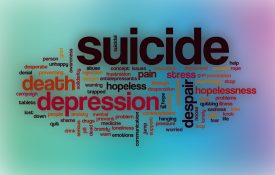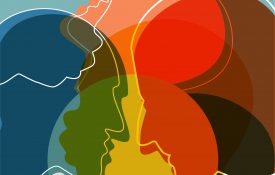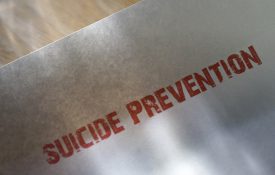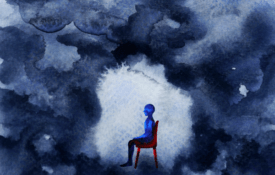
Artificial intelligence and machine learning are providing insights that will soon transcend scientists’ observational capabilities, potentially leading to revolutionary advances in understanding human psychology.

Growing interest in studying the transformative aspects of local religions and religiosity is not only important for the development of psychological science in Indonesia but also sociologically meaningful.

To speak about self-injury and how online communities might help, Emma Preston, an APS member and graduate student at the University of Southern California, joined APS’s Ludmila Nunes.

Advances in assessment and intervention could help tip the scale toward survival, one life at a time.

New research at UVA suggests that language used in text messages may one day help clinicians predict an increased risk of a suicide attempt in real time.

The IAT may help identify and provide additional support to individuals at risk of attempting suicide.

People who are contemplating killing themselves often conceal their suicidal thoughts, but scientists have adapted a widely used implicit association test to predict a person's suicide risk.

A psychological scientist renowned for developing evidence-based treatment for suicidality warns that standard interventions for suicidal behavioral -- including hospitalization -- are largely unsupported by science.

Research shows a link between one's tendency to view life in extremes can identify cognitive processes linked with psychological disorders and suicide risk.

The National Institute of Mental Health (NIMH) has announced a set of areas of interest that will inform future funding opportunities offered by the institute. These new concept clearances may serve as the basis for

Researchers are hoping to prevent suicides by harnessing the computing power of machine learning and artificial intelligence to pinpoint patients most at risk.

Teenagers and young adults who intentionally hurt themselves engage in such behavior based, in part, on how they experience pain and their emotional distress.

The National Institute of Mental Health (NIMH) and the National Institute of Minority Health and Health Disparities (NIMHD) have issued a Notice of Special Interest inviting grant applications proposing to research the risks and prevention of Black child and adolescent suicide.

The National Institute of Mental Health (NIMH) has issued a funding opportunity announcement supporting new research institutions to study suicide prevention.

A unique longitudinal investigation of Major Depressive Disorder tracks the illness across four critical periods in life, providing new insights into how depression emerges and develops over time.

What characteristics are associated with the willingness (or ability) to change one's behavior for the better, and what interventions show the most promise for helping them?

Clinical researchers and other scientists investigate computer algorithms that could lead to reliable measures of suicide risk.

The latest PSPI examines psychological interventions for the treatment of chronic pain, including the gap between the evidence of the effectiveness of several psychological interventions and their availability and use in treatment.

New research from Clinical Psychological Science tested three hypotheses that might explain why self-injury might improve mood.

APS James McKeen Cattell Fellow Stephen P. Hinshaw has dedicated his career to uncovering the biological and contextual underpinnings of developmental psychopathology — and to combatting the stigma associated with mental illness.

Experts from the APS Global Collaboration on COVID-19 have responded to a call for input on digital health from the White House.

For people in poverty, remembering better times — such as past success — improves cognitive functioning by several IQ points and increases their willingness to seek help from crucial aid services, a study finds.

A growing body of research supports the fact that, with acceptance and body autonomy, people who are transgender can live just as happily as anyone else.

The very same technologies that make social distancing bearable in the age of COVID-19 have also been cited among leading causes of social isolation and mental health issues. Psychological research suggests a more nuanced reality.
